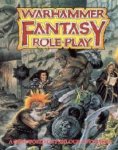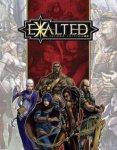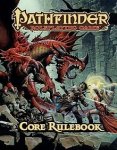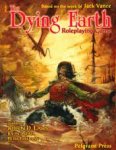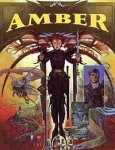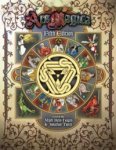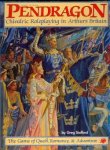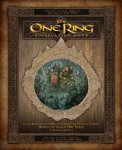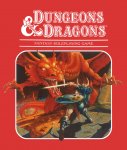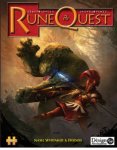TrippyHippy
Hero
Fantasy can be tricky to define as a genre, if you choose to incorporate things like space (Star Wars) and urban fantasy (Shadowrun), but I’m generally sticking with historical based fantasies in this list. Oh, and no generic systems either - no GURPS, FATE, Savage Worlds etc. It’s specialist fantasy RPGs only. Finally, no edition warring - or separate entrees for different editions of the same game. I am trying to measure each game for design features, as well as overall commercial and artistic impact throughout all of RPG history.
10) Warhammer Fantasy Role Play- It was ranked as the most successful British RPG till its 40K brethren took over, and it captures a certain degree of gritty black humour that other games have always aspired to. The original system wasn’t desperately groundbreaking, and the latter edition’s a bit confusing, but it did boast a huge array of careers in a fairly unique character development system. The sheer variety of career templates on show (all with illustrations) created a real feel for the late medieval, germanic society depicted in the game. Above all, this game had real brio (with a sly dose of punk sensibilities) .
9) Exalted - Epic, superpowered demigods fighting in an anime inspired ancient world setting. The dice pool mechanics are sometimes problematic and this has annoyed some. Yet it represents one game that kept White Wolf afloat in the early 2000s while not adhering to the d20 craze at the time. Thoroughly well realised and supported as a game line - it holds the record for the highest Kickstarter fund ever raised for an RPG . For that reason, it has to be on the list.
8) Pathfinder - This also has to be on the list too, for the similar reason of it’s sheer popularity and commercial success. It could arguably be placed higher, were it not for it’s obvious aspect of being a D&D retroclone. It has, however, created its own niche and sensibilities that will, I am sure, outlive the comparisons. It’s basically, its own game now - and the current market leader.
7) The Dying Earth - Designed by notable designer Robin D. Laws, and adapted from the fantasy novel series of the same name by Jack Vance (he of ‘Vancian magic’ fame). This game is a departure from normal fantasy gaming due to it’s verbal-based mechanics. It was probably the first RPG (as far as I’m aware) to explicitly try to create social conflict mechanics, while it’s magic system came in several parts: cantrips, spells and a form of magical pact you can make with magical beings. It was groundbreaking in a number of ways therefore, and written with an impish sense of verbose humour.
6) Amber - If The Dying Earth was a departure from normal fantasy gaming, then Amber (also based on a series of fantasy novels by Roger Zelazny) was a bit of a bombshell: no dice or randomiser of any sort. It works because the power levels of PCs are near godlike - so that they can do essentially anything unless they are conflicted by another being. The diceless mechanics are both intuitive and simple (you can pretty much write all a characters details on an index card), and there are other innovations such as attribute auctions as well as a series of evocative magic systems and powers that all fostered a tremendous degree of creativity. It has spawned a number of other games since, and helped pioneer the notion of ‘indie gaming’. The creator Erick Wujcik has sadly passed away now - but he leaves a clear legacy in game design.
5) Ars Magica - Arguably the first game to coin the notions of ‘indie game’ and indeed 'narrativism' as a concept. A self proclaimed ’Storytelling game’, it departs from any sense of game balance, and makes wizards toweringly more powerful than any other character. It counters this by introducing the idea of troupe play and a central covenant to base all stories around. You can play one character in one story, then another in another story meaning you take turns to play powerful or weaker characters, and also to GM the game. The ‘verb and noun’ based magic system is highly flexible, very detailed and openly creative (you can create original effects on the fly, and develop your own highly personalised style - if you have the underlying knowledge of the ‘arts’ involved). The setting is the most authentically and meticulously researched ‘Mythic’ version of medieval Europe that you can find in any RPG. And the game line keeps chugging out supplements regularly as it has done since 1987. Not bad for an indie game that was written by two guys who went on to bigger things: Jonathan Tweet (D&D3E, 13th Age) and Mark Rein-Hagen (Vampire: the Masquerade and the rest of the WoD).
4) King Arthur Pendragon - Preceding Ars Magica by a few years, and adapting a ruleset design from RuneQuest, Pendragon was the lovechild of GAMA Hall Of Fame recipient, Greg Stafford. It again features a huge level of graduate level research into it’s literary based subject matter, and is a game where all the PCs are Knights or Ladies. The tales of King Arthur are actually anachronistic - set in the 5-6th century dark ages, but from the romantic perspective of late medieval writers (Mallory, primarily - who was as writing as a knight during the 15th century War of the Roses). Pendragon is a truly authentic and evocative representation of these works, but accessibly so, and the system is flawless and specifically suited towards recreating these tales. Built on the idea of generation spanning long campaigns, it’s a game where you experience romance and violent brutality (on a par with Game of Thrones) in equal measure. Your characters are going to die one way or another, but things like honour and passion run much deeper than life and death in the world of Pendragon. The Great Pendragon Campaign, also an award winner, is a campaign that could run for years and years and is completely immersive.
3) The One Ring - Still in its infancy in a sense, and not the first Middle Earth RPG, this is still the best Middle Earth RPG ever made. Like Pendragon (a game cited in its design development), this is a game that handles long campaigns - specifically in the years between The Hobbit and Lord of the Rings. Tolkien’s work carries such an enormous and scrutinising fan base regarding canon, that any undertaking to create an RPG out of it is an arduous task. There are some limitations - nobody can play Wizards, as the angelic ‘Maiar’ were only a handful in the canon (Gandalf is a NPC) and the morality in the game is central to everything. But there is still so much to explore in the setting that you won’t end up caring. There is much mechanical emphasis on journeying and detailed geography as you might expect. The system is unique (dice pool based) but professionally polished, it looks amazing and it’s a delight to read. If Cubicle 7 can merely hold on to their license for a few more years - then it is already a classic.
2) Dungeons & Dragons - The 800lb Gorilla in the room. Forget the edition wars and celebrate the fact that this was the game that started it all, and was so successful it became a household name. For many people, the terms ‘D&D’ and 'RPG’ are synonymous. The fantasy style is much more flashy than some other games on this list, but generic still and there is more scope towards playing different types of character and creating original settings. D&D is fun, accessible, immersive in a variety of different game styles and its always been there in one form or another. It is still the best introductory RPG that there is.
1) RuneQuest - Hold on? What!? I’m placing it above D&D in the rankings? Well, yes I am. Y’see, RuneQuest can do all those things that D&D can do too, but the system is more organic and inherently flexible. Whereas D&D operates on a series of assumptions - Classes, Alignments, etc - for its internal logic, RuneQuest is more firmly rooted in realistic and authentic simulation. This opens up the versatility of the game substantially. It’s much easier to take a fantasy or historical tale and adapt the RQ ruleset to it than it is with D&D. Following on, the settings that have been supported by the game (Glorantha and onwards - arguably including Elric/Stormbringer and every other BRP game) can be amazing and are generally a lot edgier than the D&D counterparts. Some people claim it’s more complex than D&D, but it isn’t really - just different and more open in it’s assumptions. The sub systems for combat and magic require a degree of mastery to get the most from them, but when they click, boy do they click! You have scope to customise and create your own style, and away from the constraints of class and so on, no two characters are ever alike. The game has been hugely influential to later game design - including D&D and others on this list - and is still in a current and excellent edition. For me, its the best fantasy RPG ever made!
10) Warhammer Fantasy Role Play- It was ranked as the most successful British RPG till its 40K brethren took over, and it captures a certain degree of gritty black humour that other games have always aspired to. The original system wasn’t desperately groundbreaking, and the latter edition’s a bit confusing, but it did boast a huge array of careers in a fairly unique character development system. The sheer variety of career templates on show (all with illustrations) created a real feel for the late medieval, germanic society depicted in the game. Above all, this game had real brio (with a sly dose of punk sensibilities) .
9) Exalted - Epic, superpowered demigods fighting in an anime inspired ancient world setting. The dice pool mechanics are sometimes problematic and this has annoyed some. Yet it represents one game that kept White Wolf afloat in the early 2000s while not adhering to the d20 craze at the time. Thoroughly well realised and supported as a game line - it holds the record for the highest Kickstarter fund ever raised for an RPG . For that reason, it has to be on the list.
8) Pathfinder - This also has to be on the list too, for the similar reason of it’s sheer popularity and commercial success. It could arguably be placed higher, were it not for it’s obvious aspect of being a D&D retroclone. It has, however, created its own niche and sensibilities that will, I am sure, outlive the comparisons. It’s basically, its own game now - and the current market leader.
7) The Dying Earth - Designed by notable designer Robin D. Laws, and adapted from the fantasy novel series of the same name by Jack Vance (he of ‘Vancian magic’ fame). This game is a departure from normal fantasy gaming due to it’s verbal-based mechanics. It was probably the first RPG (as far as I’m aware) to explicitly try to create social conflict mechanics, while it’s magic system came in several parts: cantrips, spells and a form of magical pact you can make with magical beings. It was groundbreaking in a number of ways therefore, and written with an impish sense of verbose humour.
6) Amber - If The Dying Earth was a departure from normal fantasy gaming, then Amber (also based on a series of fantasy novels by Roger Zelazny) was a bit of a bombshell: no dice or randomiser of any sort. It works because the power levels of PCs are near godlike - so that they can do essentially anything unless they are conflicted by another being. The diceless mechanics are both intuitive and simple (you can pretty much write all a characters details on an index card), and there are other innovations such as attribute auctions as well as a series of evocative magic systems and powers that all fostered a tremendous degree of creativity. It has spawned a number of other games since, and helped pioneer the notion of ‘indie gaming’. The creator Erick Wujcik has sadly passed away now - but he leaves a clear legacy in game design.
5) Ars Magica - Arguably the first game to coin the notions of ‘indie game’ and indeed 'narrativism' as a concept. A self proclaimed ’Storytelling game’, it departs from any sense of game balance, and makes wizards toweringly more powerful than any other character. It counters this by introducing the idea of troupe play and a central covenant to base all stories around. You can play one character in one story, then another in another story meaning you take turns to play powerful or weaker characters, and also to GM the game. The ‘verb and noun’ based magic system is highly flexible, very detailed and openly creative (you can create original effects on the fly, and develop your own highly personalised style - if you have the underlying knowledge of the ‘arts’ involved). The setting is the most authentically and meticulously researched ‘Mythic’ version of medieval Europe that you can find in any RPG. And the game line keeps chugging out supplements regularly as it has done since 1987. Not bad for an indie game that was written by two guys who went on to bigger things: Jonathan Tweet (D&D3E, 13th Age) and Mark Rein-Hagen (Vampire: the Masquerade and the rest of the WoD).
4) King Arthur Pendragon - Preceding Ars Magica by a few years, and adapting a ruleset design from RuneQuest, Pendragon was the lovechild of GAMA Hall Of Fame recipient, Greg Stafford. It again features a huge level of graduate level research into it’s literary based subject matter, and is a game where all the PCs are Knights or Ladies. The tales of King Arthur are actually anachronistic - set in the 5-6th century dark ages, but from the romantic perspective of late medieval writers (Mallory, primarily - who was as writing as a knight during the 15th century War of the Roses). Pendragon is a truly authentic and evocative representation of these works, but accessibly so, and the system is flawless and specifically suited towards recreating these tales. Built on the idea of generation spanning long campaigns, it’s a game where you experience romance and violent brutality (on a par with Game of Thrones) in equal measure. Your characters are going to die one way or another, but things like honour and passion run much deeper than life and death in the world of Pendragon. The Great Pendragon Campaign, also an award winner, is a campaign that could run for years and years and is completely immersive.
3) The One Ring - Still in its infancy in a sense, and not the first Middle Earth RPG, this is still the best Middle Earth RPG ever made. Like Pendragon (a game cited in its design development), this is a game that handles long campaigns - specifically in the years between The Hobbit and Lord of the Rings. Tolkien’s work carries such an enormous and scrutinising fan base regarding canon, that any undertaking to create an RPG out of it is an arduous task. There are some limitations - nobody can play Wizards, as the angelic ‘Maiar’ were only a handful in the canon (Gandalf is a NPC) and the morality in the game is central to everything. But there is still so much to explore in the setting that you won’t end up caring. There is much mechanical emphasis on journeying and detailed geography as you might expect. The system is unique (dice pool based) but professionally polished, it looks amazing and it’s a delight to read. If Cubicle 7 can merely hold on to their license for a few more years - then it is already a classic.
2) Dungeons & Dragons - The 800lb Gorilla in the room. Forget the edition wars and celebrate the fact that this was the game that started it all, and was so successful it became a household name. For many people, the terms ‘D&D’ and 'RPG’ are synonymous. The fantasy style is much more flashy than some other games on this list, but generic still and there is more scope towards playing different types of character and creating original settings. D&D is fun, accessible, immersive in a variety of different game styles and its always been there in one form or another. It is still the best introductory RPG that there is.
1) RuneQuest - Hold on? What!? I’m placing it above D&D in the rankings? Well, yes I am. Y’see, RuneQuest can do all those things that D&D can do too, but the system is more organic and inherently flexible. Whereas D&D operates on a series of assumptions - Classes, Alignments, etc - for its internal logic, RuneQuest is more firmly rooted in realistic and authentic simulation. This opens up the versatility of the game substantially. It’s much easier to take a fantasy or historical tale and adapt the RQ ruleset to it than it is with D&D. Following on, the settings that have been supported by the game (Glorantha and onwards - arguably including Elric/Stormbringer and every other BRP game) can be amazing and are generally a lot edgier than the D&D counterparts. Some people claim it’s more complex than D&D, but it isn’t really - just different and more open in it’s assumptions. The sub systems for combat and magic require a degree of mastery to get the most from them, but when they click, boy do they click! You have scope to customise and create your own style, and away from the constraints of class and so on, no two characters are ever alike. The game has been hugely influential to later game design - including D&D and others on this list - and is still in a current and excellent edition. For me, its the best fantasy RPG ever made!
Last edited:

